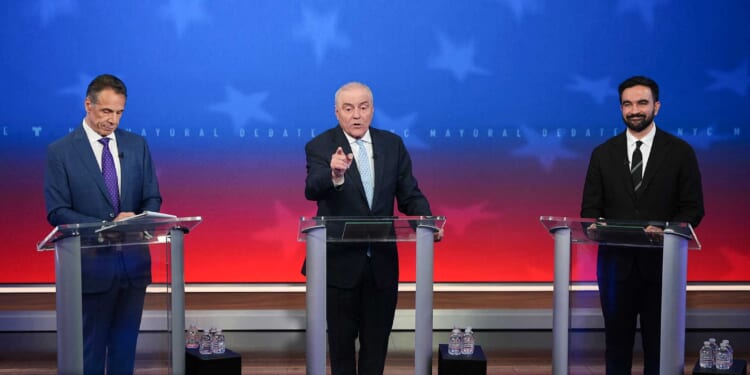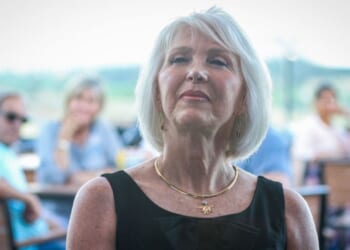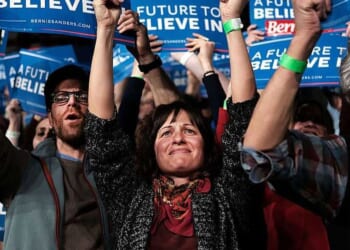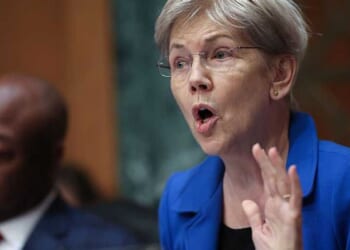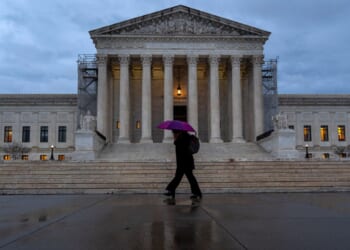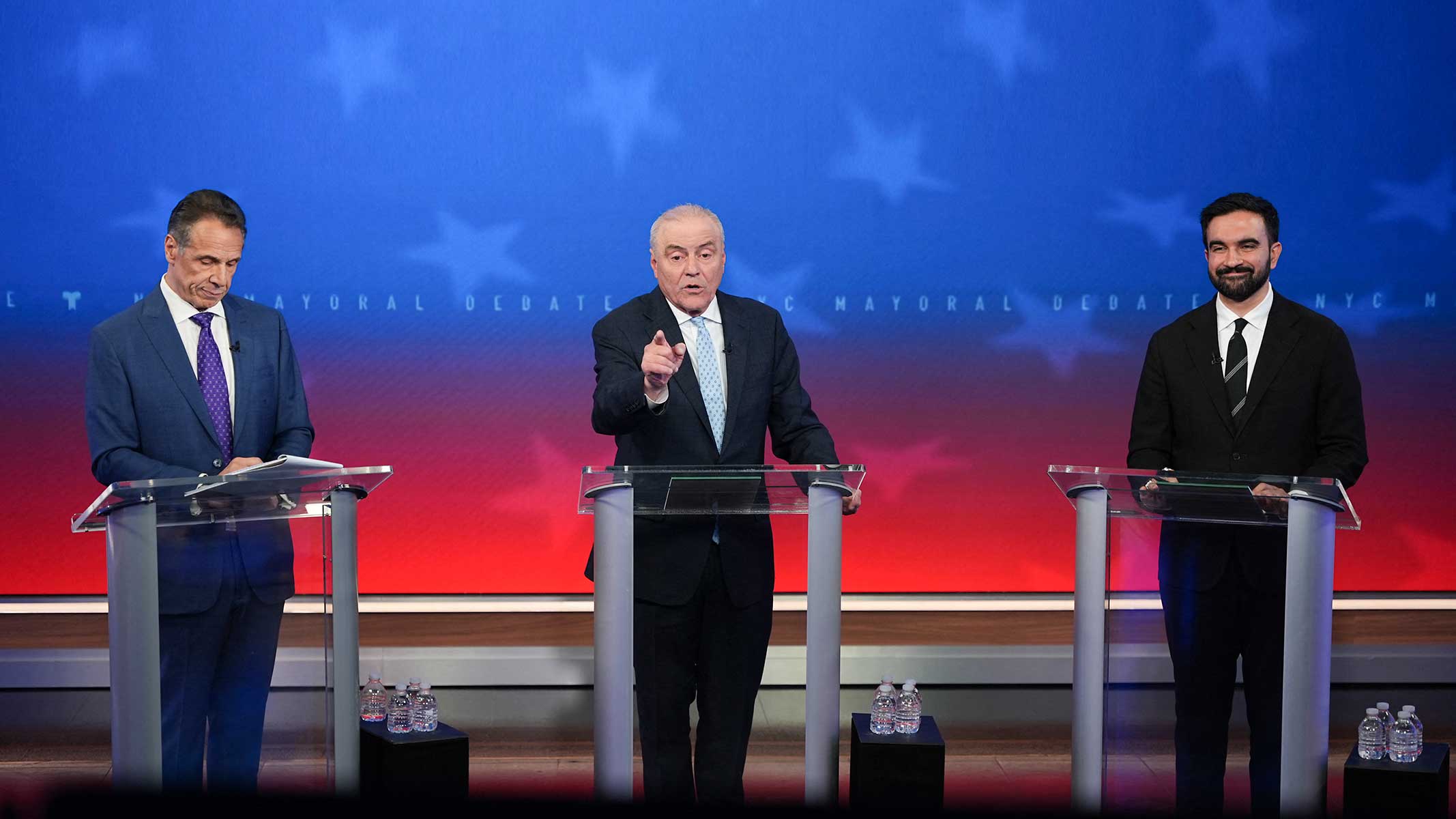
With nine days to go before early voting begins in the New York City general election, Democratic frontrunner Zohran Mamdani brawled with former governor Andrew Cuomo and Republican Curtis Sliwa in the first of two televised debates. Though most voters will likely remember the night for personal invective, it laid bare a deeper struggle between New York’s old guard and the young Left’s governing vision.
Heading into Thursday, Mamdani had the most to lose. His polling numbers have hovered in the mid-40s, giving him roughly a 15-point lead over Cuomo and about a 30-point lead over Sliwa. But Cuomo’s rising numbers since Mayor Eric Adams’s withdrawal from the race meant that Mamdani had to hold his ground.
Finally, a reason to check your email.
Sign up for our free newsletter today.
Despite such risks, none of the candidates played it safe. Yet by night’s end, none had scored a knockout. Cuomo delivered as a buttoned-up statesman, offering substantive responses on policy but often being forced on the defensive over his record and history. Sliwa blended bluster and old school street smarts with the bravado of a man who’s been trading punches in New York for decades. Mamdani largely avoided major missteps and thus emerged with his leading status solidly intact, though his forced smiles could not disguise a noticeably thinner command of policy than Cuomo’s.
The debate began with Cuomo landing jabs on Mamdani’s lack of experience: “He literally has never had a job. On his resume, it says he interned for his mother. This is not a job for a first timer.” Mamdani retorted that his integrity makes up for his lack of experience, reminding voters that Cuomo’s experience contributed to nursing home deaths during the Covid pandemic. Sliwa cast himself as the outsider, touting his decades of service beyond government and blasting Cuomo as “the architect” and Mamdani “the apprentice” of policies like cashless bail.
Jabs turned to punches when discussing President Trump and the Gaza peace deal. Mamdani said he’d work with Trump only to ease New Yorkers’ cost of living, otherwise pledging to resist the president’s “billionaire-backed assault on working people.” Cuomo struck a balanced tone, saying he wasn’t spoiling for a fight but would stand up to Trump if the city’s interests were threatened. Sliwa mocked the idea of his rivals appearing tough against Trump, warning that under a Mamdani mayoralty, the president would strip the city of $7 billion in federal funds. He promised instead to negotiate with the dealmaker-in-chief.
Attention then turned to the Gaza peace deal—a 13-minute exchange that quickly became the night’s most charged. Mamdani had few qualms characterizing Israel’s campaign in Gaza as “occupation,” “apartheid,” and “genocide,” yet he balked when Cuomo pressed him to disavow the slogan “globalize the intifada.” Even after describing his meetings with Jewish leaders who shared the terror that the phrase conjures—of bus and restaurant bombings in Haifa and Jerusalem—Mamdani would only “discourage” its use. Cuomo challenged Mamdani to affirm Israel’s right to exist as a Jewish state and condemn the slogan that he said translates to “kill all Jews.”
“Just say, ‘I denounce it,’” Cuomo urged. Mamdani refused.
On policing, Sliwa and Cuomo promised to add 7,000 and 5,000 officers to the NYPD, while Mamdani declined to back any increase. Instead, he recommitted to his campaign promise to pull police from most mental-health calls, turning them over to “mental-health outreach workers.” He claimed the change would restore 2020 response times—though police handled such calls then, too, but with thousands more officers.
On affordability, the most salient issue of the campaign, Mamdani started on a conciliatory note, saying he would make it easier for the private sector to build housing. The moderators then asked whether his signature “freeze the rent” campaign promise could survive a legal challenge. (Christian Browne and I wrote an article on the subject this week.) His answer revealed a poor grasp of the legal details.
He repeated that landlords’ profits are up compared with tenants’ incomes—a metric the Rent Guidelines Board isn’t legally required to weigh in its decisions, unlike owners’ operating costs. Cuomo noted that freezing the rent will mean more buildings going bankrupt, and that it would do nothing for the majority of New Yorkers who don’t live in rent-stabilized units.
When a moderator asked whether Mamdani’s promise amounts to a four-year prejudgment of what is supposed to be an independent decision the guidelines board makes annually, Mamdani repeated that past data showed landlords could afford the costs to them of a 0 percent rent increase. But he added that he would seek to alleviate landlords’ property-tax, insurance, and water bills—a strange concession, given his claim of higher owner profits.
Asked if they supported Governor Kathy Hochul’s reelection, all three candidates kept their hands down. Mamdani, who won Hochul’s endorsement last month, couldn’t mask the awkwardness of his position. Unprompted, he blurted out that the decision should wait until after the mayoral race, hastily adding that she was doing “a good job.”
When asked how it would be possible to raise taxes for his $10 billion agenda, despite the governor’s reluctance, Mamdani merely asserted that he would tax the wealthiest corporations the “fair amount” they should pay. Cuomo shot back that Mamdani’s corporate-tax proposal amounts to a combined state and local rate double that of New Jersey: “You would see New Yorkers on I-95 fleeing to Florida.”
When pressed on the governor’s unwillingness to raise personal income taxes on millionaires, Mamdani reiterated his proposed corporate tax hike. He conceded, however, that he would drop the tax hikes if he could obtain the money from other sources.
On public education, Mamdani appeared largely uninterested. Under Cuomo’s questioning, he restated his opposition to extending the mayor’s control over city schools. Yet moments later, he emphasized the need to retain mayoral accountability. “That’s called mayoral control,” retorted Cuomo.
By contrast, Mamdani attempted to distance himself from his past commitment to decriminalizing prostitution. “I am not and nor have I ever called for the legalization of prostitution,” he said. As City Journal investigative reporter Adam Lehodey wrote recently, however, Mamdani committed himself to the New York City Democratic Socialists of America’s radical criminal-justice agenda, which includes decriminalizing sex work. As a lawmaker, he repeatedly co-sponsored bills to decriminalize prostitution.
At the end of the evening, the candidates swung at some oddball questions. Asked whether he had ever purchased anything at a marijuana shop, Mamdani responded that he bought marijuana at a legal cannabis shop, while Cuomo said no and Sliwa acknowledged “medical” marijuana use after the 1992 taxi shooting that nearly killed him. Sliwa emerged as the pro-parades candidate, while Mamdani set low expectations for his prospective parade attendance. Cuomo reminded viewers that Mamdani gave the middle finger to the statue of Christopher Columbus—“disgraziato,” he said, a disgrace.
By the end of the two-hour session of vitriol and quirks, the three personalities had dramatized the race as a referendum on New York’s identity. Cuomo and Sliwa represent old New York, grounded in an earthy managerialism and decades-old anecdotes. Mamdani embodies a generation intent on governing by moral conviction rather than pragmatic experience. It was a clash of eras as much as a contest of ideas.
In the end, the battle ended in a stalemate and is unlikely to upend the race’s dynamics. Mathematically, the only realistic way to move the needle now is if the race becomes a two-man contest between Mamdani and Cuomo. Their numbers would likely tighten rapidly, perhaps to within polls’ margin of error, upping the stakes for the two campaigns’ get-out-the-vote efforts. Cuomo’s breaking into the 30s following Eric Adams’s departure reveals many voters’ willingness to cast their lot with him to defeat Mamdani.
All three candidates can claim a win from the debate. But just as at the Somme, the front lines haven’t shifted.
Photo by ANGELINA KATSANIS/POOL/AFP via Getty Images
Source link

